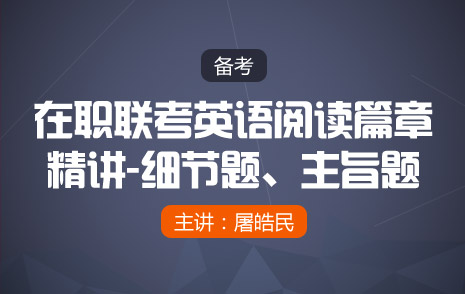2014-08-27 09:11:00 来源:网络发表评论
 在职联考准考证打印
在职联考准考证打印
备考辅导:英语备考策略和技巧 联考英语翻译备考策略 2015在职硕士考试经验技巧
GCT考试: GCT英语备考辅导 GCT数学备考辅导 GCT语文备考辅导 GCT逻辑备考
公共管理: 公文写作范文汇总 2015年在职MPA管理学案例材料 人力资源营销新论
艺术硕士: 艺术硕士艺术概论资料汇总 艺术硕士复习试题|答案 艺术硕士备考知识点
Some of the concerns surrounding Turkey’s application to join the European Union, to be voted on by the EU’s Council of Ministers on December 17th, are economic-in particular, the country’s relative poverty. Its GDP per head is less than a third of the average for the 15 pre-2004 members of the EU. But it is not far off that of one of the ten new members which joined on May 1st 2004 (Latvia), and it is much the same as those of two countries, Bulgaria and Romania, which this week concluded accession talks with the EU that could make them full members on January 1st 2007.
Furthermore, the country’s recent economic progress has been, according to Donald Johnston, the secretary-general of the OECD, "stunning". GDP in the second quarter of the year was 13.4% higher than a year earlier, a rate of growth that no EU country comes close to matching. Turkey’s inflation rate has just fallen into single figures for the first time since 1972, and this week the country reached agreement with the IMF on a new three-year, $10 billion economic programme that will, according to the IMF’s managing director, Rodrigo Rato, "help Turkey... reduce inflation toward European levels, and enhance the economy’s resilience".
Resilience has not historically been the country’s economic strong point. As recently as 2001, GDP fell by over 7%. It fell by more than 5% in 1994, and by just under 5% in 1999. Indeed, throughout the 1990s growth oscillated like an electrocardiogram recording a violent heart attack. This irregularity has been one of the main reasons (along with red tape and corruption) why the country has failed dismally to attract much-needed foreign direct investment. Its stock of such investment (as a percentage of GDP) is lower now than it was in the 1980s, and annual inflows have scarcely ever reached $1 billion (whereas Ireland attracted over $25 billion in 2003, as did Brazil in every year from 1998 to 2000).
One deterrent to foreign investors is due to disappear on January 1st 2005. On that day, Turkey will take away the right of virtually every one of its citizens to call themselves a millionaire. Six noughts will be removed from the face value of the lira; one unit of the local currency will henceforth be worth what 1m are now-ie, about €0.53 ($0.70). Goods will have to be priced in both the new and old lira for the whole of the year, but foreign bankers and investors can begin to look forward to a time in Turkey when they will no longer have to juggle mentally with indeterminate strings of zeros.
1.What is Turkey’s economic situation now?
[A] Its GDP per head is far lagging behind that of the EU members.
[B] Its inflation rate is still rising.
[C] Its economy grows faster than any EU member.
[D] Its economic resilience is very strong.
2.We can infer from the second paragraph that__________.
[A] Turkey will soon catch the average GDP level of the 15 pre-2004 EU members
[B] inflation rate in Turkey used to be very high
[C] Turkey’s economy will keep growing at present rate
[D] IMF’s economic program will help Turkey join the EU
3.The word “oscillated” (Line 3, Paragraph 3) most probably means_________.
[A] fell
[B] climbed
[C] developed
[D] swang
4.Speaking of Turkey’s foreign direct investment, the author implies that_________.
[A] it’s stock is far less than that of other countries
[B] it does not have much influence on Turkey’s economic progress
[C] steady GDP growth will help Turkey attract more foreign direct investment
[D] Turkey’s economic resilience relies on foreign direct investment
5.We can draw a conclusion from the text that__________.
[A] foreign investment environment in Turkey will become better
[B] Turkey’s citizens will suffer heavy loss due to the change of the face value of the lira
[C] the local currency will depreciate with the removal of six noughts from the face value
[D] prices of goods will go up
 已帮助8878人
已帮助8878人
| GCT | 【特训】2015年GCT英语全程专项特训班 | ¥980 | 免费试听 |
| 【特训】2015GCT语文全程专项特训班 | ¥400 | 免费试听 | |
| 【特训】2015年GCT数学全程专项特训班 | ¥680 | 免费试听 | |
| 【特训】2015年GCT逻辑全程专项特训班 | ¥400 | 免费试听 | |
| 联考英语 | 【提高】2015年联考英语技巧提高班 | ¥680 | 免费试听 |
| 【冲刺】2015年联考英语冲刺抢分班 | ¥680 | 免费试听 | |
| 法律硕士 | 【全程】2015法律硕士专业综合全程 | ¥880 | 免费试听 |
| 工商管理 | 写作专项零基础班数学专项逻辑专项 | ||
| 专项班 | 公共管理会计硕士教育硕士艺术硕士 | ||
版权及免责声明
1,"新东方在线"上的内容,包括文章、资料、资讯等, 本网注明"稿件来源:新东方在线"的,其版权 均为"新东方在线"或北京新东方迅程网络科技有限公司所有 ,任何公司、媒体、网站或个人未经授权不得转载、链接、转贴或以其他方式使用。已经得到 "新东方在线"许可 的媒体、网站,在使用时必须注明"稿件来源:新东方",违者本网站将依法追究责任。
2, "新东方在线" 未注明"稿件来源:新东方"的 文章、资料、资讯等 均为转载稿,本网站转载出于传递更多信息之目的,并不意味着赞同其观点或证实其内容的真实性。如其他媒体、网站或个人从本网站下载使用,必须保留本网站注明的"稿件来源",并自负版权等法律责任。如擅自篡改为 " 稿件来源:新东方 " ,本网站将依法追究其法律责任。
3,如本网转载稿涉及版权等问题,请作者见稿后在两周内与新东方在线联系。

 w
12分56秒
w
12分56秒